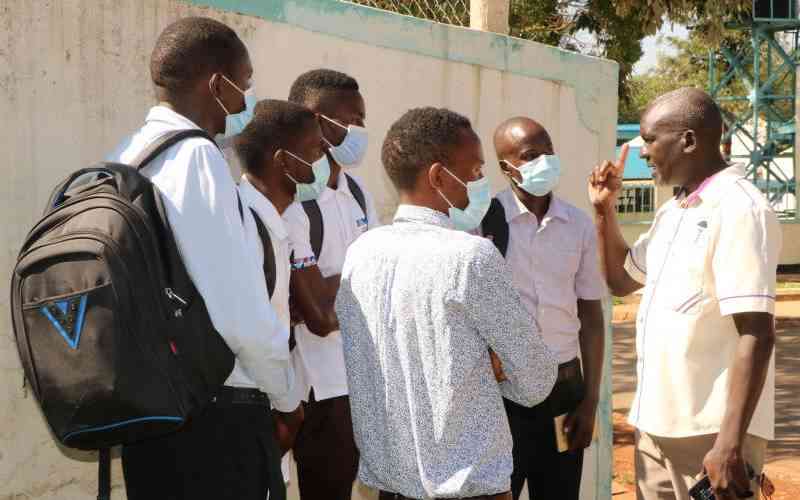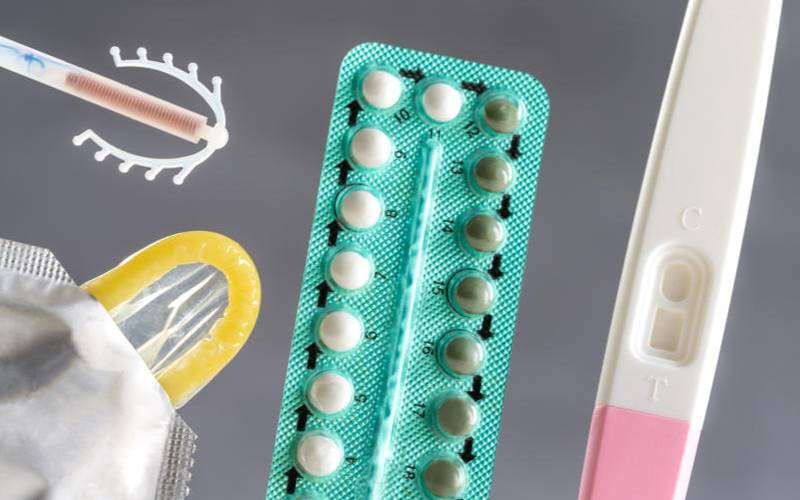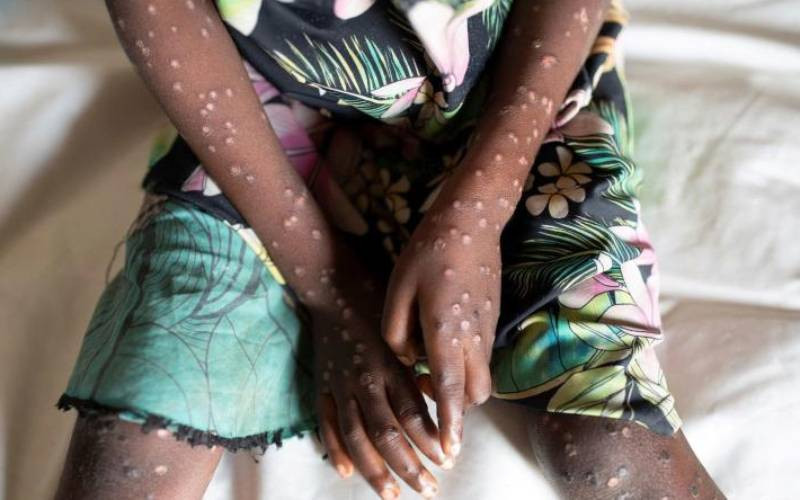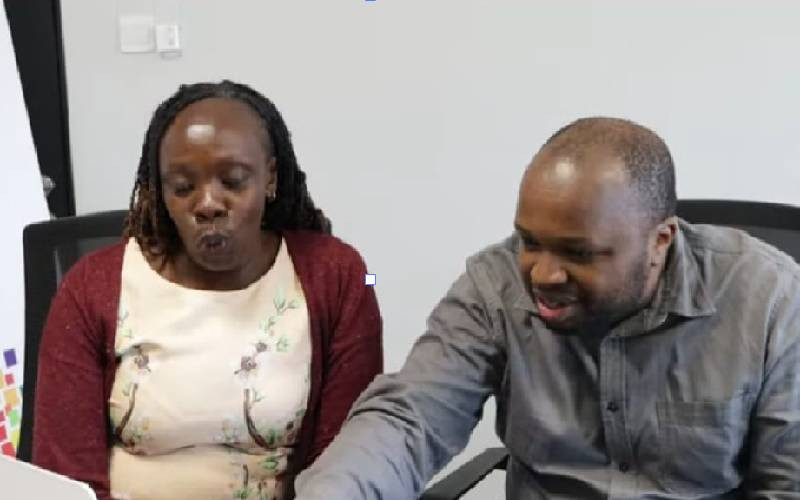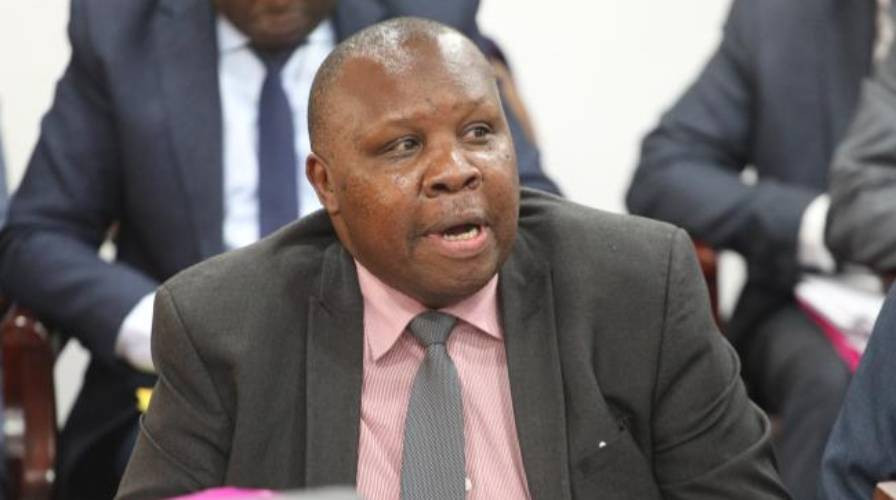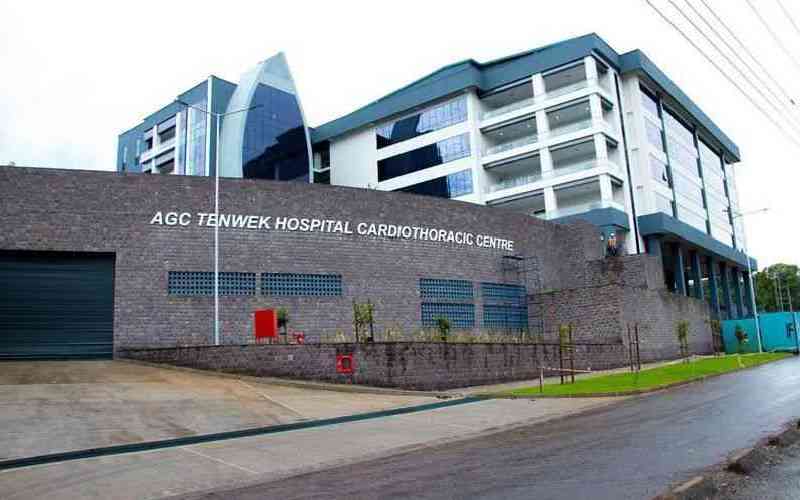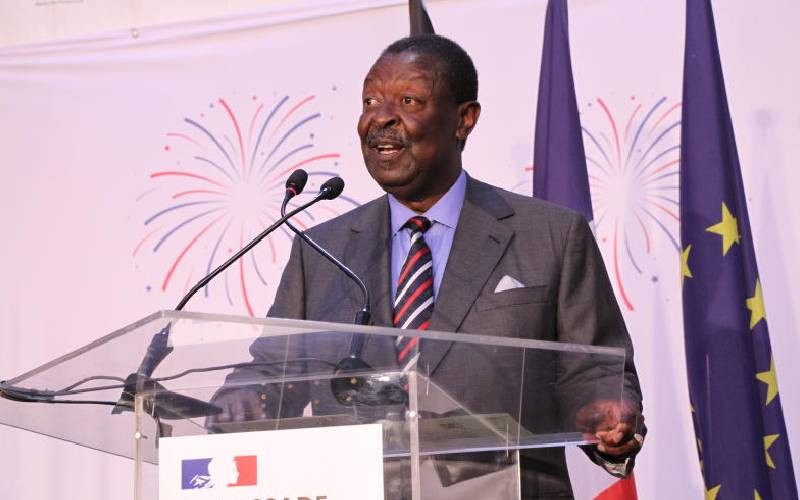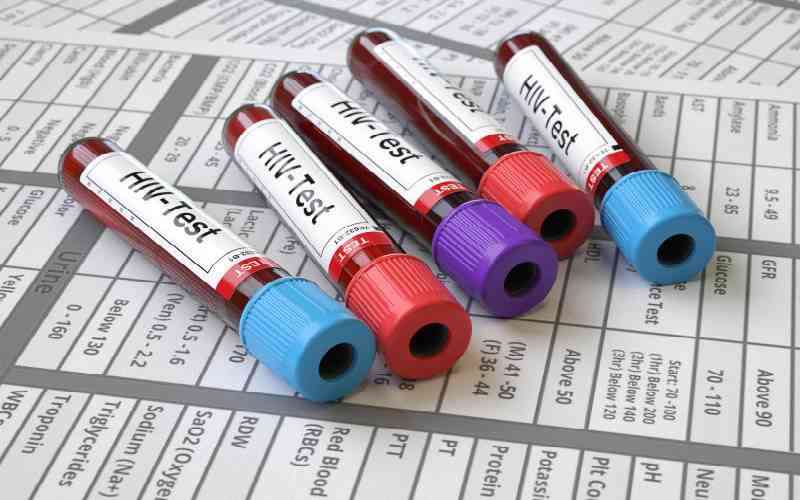
Brenda* has been on HIV treatment since 2003. As she steps out of a Gilgil hospital after her twins have been declared HIV negative, joy paints her face, and grace and confidence define her gait.
“This feels like a dream,” she quips, adding cautiously, “It has been quite a journey, and I am grateful for the consistent treatment that helped suppress my viral load.”
“Without antiretrovirals (ARVs), I would have infected my children and likely died from Aids. In the early days of acquiring HIV, I saw many people die from the virus, but treatment has saved my life and that of my children,” she adds.
Brenda is among thousands of Kenyans who have access to ARVs and HIV services, thanks to the support of the United States’ Global Fund and PEPFAR (The US President’s Emergency Plan for Aids Relief).
These programmes have been a game-changer in the fight against one of the three killer diseases across Kenya and largely Africa.
Under the HIV programme, the donor supplies commodities, including testing kits and Antiretroviral (ARV) treatment.
- Trump's election victory raises concern among global climate leaders
- What Trump's WHO and climate withdrawals mean for Africa
- Donald Trump unleashes chaos with executive orders, proclamations
- Trump's policy hits Kenyan HIV and health initiatives
Keep Reading
Through the support, at least 1.3 million people living with HIV in Kenya have been put on ARVs, according to data from the National Syndemic Disease Control Council (NSDCC).
The Director of the National Empowerment Network of People Living with HIV/AidsS in Kenya (NEPHAK), Nelson Otwoma, says although the US has been the leading supporter of HIV programmes through PEPFAR since 2014, there has been a gradual reduction in their budgetary allocations for the project.
With Trump’s return to the presidency, Otwoma now expresses concerns about a highly unpredictable funding environment.
“Trump’s presidency will impact not just PEPFAR, but also UNAids, the UN agency for HIV/Aids, and the Global Fund to fight AIDS, TB, and Malaria. Trump’s ‘America First’ policy prioritises domestic interests, which means funding for these global initiatives is likely to decline.”
He adds, “Trump does not appear likely to sustain the funding levels for PEPFAR and the Global Fund at current levels. This will directly impact Kenya.”
“His approach to funding, coupled with Kenya’s issues of corruption and procurement irregularities, puts us in a precarious position. Trump is a businessman who pays attention to such issues, and I do not believe Kenya is in his good books,” he continues.
“When they say ‘America First’, ‘Make America Great Again’ – they also prioritise American pharmaceutical companies. This could mean higher costs for ARVs since Kenya imports most of its ARVs from India, but Trump’s policies might push for the use of American pharmaceuticals, which could be more expensive,” says the representative of people living with HIV/AIDS.
Trump’s presidency could also spell trouble for global health agencies.
Trump has previously stated that he would cut funding to the World Health Organisation (WHO) and the United Nations – agencies that collaborate with UNAids by leveraging support for the Global Fund.
In his speech, the former president, who is making a return to the White House, said that WHO had failed in its basic duty and must be held accountable, holding that during the Covid-19 pandemic, the global agency promoted China’s disinformation about the virus, which led to the spread of the respiratory viral disease across the globe.
Trump’s comments attracted a reaction from WHO chief, Dr Tedros Adhanom Ghebreyesus, who said it was “time for all of us to be united in our common struggle against a common threat.”
WHO works worldwide to promote health, keep the world safe, and serve the vulnerable, by ensuring that a billion more people have universal health coverage, protecting a billion more people from health emergencies, and providing a further billion people with better health and well-being.
“While he has not directly addressed Africa’s epidemic, he has often criticised corrupt African governments. Statements like these indicate that Africa is not a priority in his agenda,” says Otwoma. “With such references, we know we are not in a good place with Trump.”
“He doesn’t have to say explicitly that he will stop funding tomorrow. His past statements and policies suggest where his priorities lie, and unfortunately, they do not favour us,” Otwoma stresses.
The Global Fund is among the highest funders of Kenya’s health system.
Kenya’s total commodity allocation for HIV services is Sh28.7 billion, of which Sh5.3 billion comes from the Global Fund and Sh3.3 billion from the Kenyan Government.
Out of the Sh28.7 billion, the Global Fund allocates Sh4.6 billion for ARVs, while the Kenyan Government allocates Sh2.2 billion.
However, there is a total shortage of Sh2.4 billion worth of ARVs.
PEPFAR funding for HIV commodities has been dwindling over the years, from Sh17 billion, Sh11 billion, Sh9 billion, to the current Sh7.3 billion.
The Executive Director of the Kenya Legal and Ethical Issues Network on HIV and AIDS (KELIN), Allan Maleche, acknowledges that the US has been a critical partner in supporting Kenya’s healthcare system and broader health infrastructure across Africa, with significant contributions focusing on combating HIV, tuberculosis (TB), and malaria through two primary channels.
The first channel is PEPFAR, funded directly by the US government to interventions, particularly in Africa, with Kenya being one of the largest recipients of the funding.
Maleche adds that the US is also the largest contributor to the Global Fund, which supports health programmes worldwide.
“Global Fund and PEPFAR initiatives provide over 60 per cent of funding for HIV, TB, and malaria programmes in Kenya and Africa, contributions that have been instrumental in saving lives, sustaining treatment programmes, and strengthening healthcare infrastructure,” Maleche explains.
“The gains made in HIV response cannot be downplayed. Look at the lives saved, the jobs created, and the strengthened healthcare systems,” he observes, adding, “Reproductive health services will undoubtedly face significant challenges under a reduced funding regime.”
However, with the return of Trump’s presidency, Maleche echoes concerns about reduced foreign aid.
“The Republican Party’s ‘Project 2025’ proposes significant cuts to foreign assistance, including PEPFAR, USAID, and other health programmes,” he says. “If implemented, these reductions would pose a severe threat to the sustainability of healthcare initiatives in Kenya and beyond. Programmes like the Global Fund, which rely on regular replenishments, may fall short of their targets, leaving vulnerable populations at risk.”
Maleche also highlights the likely reinstatement of the expanded Mexico City Policy, or the “Global Gag Rule”, that restricts U.S. funding to organisations that provide or advocate for sexual and reproductive health services, including abortion and transgender healthcare, and those working with sex workers. Such restrictions could severely impact reproductive health programmes across Kenya and Africa,” he says.
Director of the Health NGO Network (HENNET), Margaret Lubale, echoes Maleche’s sentiments, saying there is widespread fear about the global gag rule taking effect again.
Organisations that provide critical sexual and reproductive health services could suffer as the space for such programmes shrinks.
“During Trump’s previous tenure, there was a noticeable focus on faith-based organisations. While we do not know his exact priorities this time, there is concern that the space for sexual and reproductive health services will be further constrained,” observes the health advocate.
Lubale notes that with the return of Trump, the first major concern for donor-dependent programmes is the anticipated reduction in donor funding.
“Trump’s approach is highly America-centric, focusing on domestic policies and prioritising the development of the U.S.,” says Lubale. “This means the fiscal space for foreign aid will shrink even further. Programs that rely on U.S. funding may face significant challenges.”
“We may also see USAID pulling back funding or reducing its contributions, and there is uncertainty about the US’s commitment to the WHO. Trump has previously expressed intentions to pull out of WHO, which adds to fears that both the funding and human rights space will shrink significantly,” Lubale adds.
“HIV programmes have historically been the largest beneficiaries of American donor support,” Lubale states. “We have also seen significant benefits in the empowerment of young women through DREAMS programmes, agricultural initiatives like Feed the Future, and maternal and child health projects. The U.S. government has been one of the most consistent, committed, and generous donors.”
Further, she highlights the critical impact of this support, particularly in the HIV space.
“Today, 1.3 million Kenyans are on ARVs. Without USAID’s involvement, achieving this would have taken much longer. This dependency has created challenges. It is now a difficult conversation to have the Kenyan government fully take over HIV funding.
“One pressing issue is the lack of a clear transition plan for donor-funded programmes,” Lubale explains.
“The government has discussed donor transition plans, but nothing concrete has been made public. This has fostered a comfort zone where we assume Gavi will handle immunisation, USAID will manage HIV programmes, and the Global Fund will fill in the gaps. But what happens when these funds are reduced or withdrawn? These are Kenyan citizens. They do not belong to America or the Global Fund,” poses Lubale.
In the recent past, the country has reported inconsistency in the supply of HIV commodities, including ARVs and testing kits.
While there are current reports of a biting shortage of ARVs, Otwoma says this is not accurate.
“We do not have a shortage of ARVs at the moment. What has been out of stock since last year is the second-line ARV called Atazanavir/ritonavir (ATV/r),” he says, adding, “Patients’ representatives held a meeting with NASCOP and they clarified that this particular regimen was being phased out.”
He adds that those taking Atazanavir were advised to undergo clinical assessments before they can be put on Dolutegravir.
NASCOP, he adds, also held a virtual sensitisation of NEPHAK members detailing those who are clinically eligible for Dolutegravir in December 2024.
First-line ARVs are used for the initial treatment of HIV. The recommended first-line HIV treatment regimens include ARV drugs that are safe, effective, and convenient for people with HIV who have never taken ARVs before.
 The Standard Group Plc is a multi-media organization with investments in media
platforms spanning newspaper print
operations, television, radio broadcasting, digital and online services. The
Standard Group is recognized as a
leading multi-media house in Kenya with a key influence in matters of national
and international interest.
The Standard Group Plc is a multi-media organization with investments in media
platforms spanning newspaper print
operations, television, radio broadcasting, digital and online services. The
Standard Group is recognized as a
leading multi-media house in Kenya with a key influence in matters of national
and international interest.

